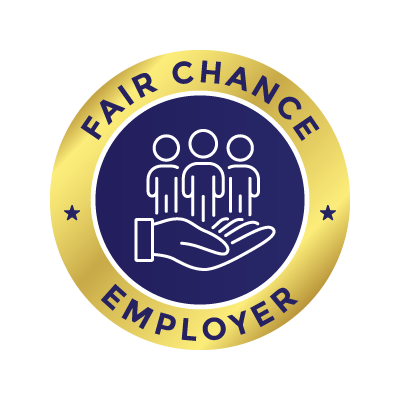General:
A: The eligibility screening tool is a quick way to get a sense of what is on your Arizona or Utah criminal record, and whether it might be eligible for record clearance. The tool provides you with a list of your cases and helps predict what your options might be to seal, set-aside, or expunge those records. Rasa believes in providing you with all the available information we can, so you can use it to plan for your future.
A: No. If our tool predicts that you have cases that are eligible for some type of record clearance, you will have the option to hire Rasa as your lawyer to help you clear your records. We provide low-cost, simple, and transparent pricing. However, there is no obligation to hire Rasa, and you can also take your results elsewhere and do whatever you like with them. Rasa believes in putting you in control of your records.
A: Unlike traditional law firms that typically charge somewhere between $1,500 to $3,000 to clear 2-3 records, Rasa offers low-cost, transparent pricing for all of our services. We are able to make legal services much more affordable because our sophisticated software streamlines many of the manual steps associated with the record clearance process. Rasa also offers interest-free monthly payment plans that allow you to start clearing your record now, and pay over 4 months at no additional charge.
A: Rasa is a mission-driven social impact company started by a leader of the national clean slate movement. Record clearance is our specialty. We are committed to transforming legal services to make them affordable and accessible to all who need them. We are also community advocates who fight for better record clearance laws for all. We have developed custom software to simplify the legal sealing, set-aside, and expungement process, and make it affordable for people to access a second chance.
A: Rasa is focused on making record clearance as affordable and accessible as possible. We offer eligibility screenings, legal representation for different types of record clearance, and other related legal services. Click here to see our Utah services as well as our Arizona services. We also partner with businesses, nonprofit organizations, and government partners to help cover the cost of record clearance. To learn more about our partnerships, click here
Rasa specializes in helping people determine their eligibility for record clearance, and providing low-cost criminal record sealing, set aside, expungement, and rights restoration services to people who need to go through a court-based process to get relief. The people who are best suited for our services include people who:
- don’t currently have any open cases in the justice system;
- Have completed all the terms of their sentence, including completing any terms of probation or parole;
- have been out of the system and off probation or parole for at least 2 years;
- have a combination of misdemeanor or felony offenses that do not include particularly violent conduct or registerable sex offenses.
To find out if Rasa’s service is right for you, we have an easy-to-use eligibility tool that can check all your records in under 3 minutes. Our tool will give you a detailed report of all of your cases and predict whether they might be eligible for record clearance now or in the future. See our eligibility tool here.
Utah:
A: It can be easy to get our organizations mixed up, but there are some important differences between our organizations. Whichever organization best meets your needs, both are here for you and dedicated to helping Utahns clear their criminal records and access new opportunities.
Clean Slate Utah provides resources and support for individuals who are representing themselves in the expungement process through workshops, events, and educational materials. They DO NOT offer legal advice, legal services, or provide any kind of legal representation.
Rasa Legal is a public benefit legal tech company that specializes in providing low-cost legal services to individuals with criminal records. Rasa’s team includes lawyers and software engineers who have built software to streamline many of the aspects of the expungement process. When you hire Rasa to represent you, the Rasa legal team handles your expungement from start to finish in the same way a traditional lawyer would, but for a much lower price.
For more information of the differences between Rasa and Clean Slate Utah click here.
A: Sometimes, individuals are not eligible to clear their record due to the number or type of records they have. For individuals in this position, there are two alternatives to explore: 402 reductions or a pardon.
A 402 Reduction is a process where a motion can be made to the court to reduce the severity of a criminal record by one or two degrees. Court approval is required for a one-step reduction and court and prosecutor approval are required to obtain a two-step reduction. If the motion is approved, the reduced records may become eligible for expungement. Rasa offers representation for 402 Reductions to help individuals on their path towards expungement.
If a person has too many records to be eligible for expungement, it may be an option to obtain a pardon from the Utah Board of Pardons and Parole. The board has 5 members who are appointed by the Governor. While this is not a hard and fast rule, the Board of Pardons typically wants to see a person out of the justice system for at least 5 years before they apply for a pardon. In order to be able to apply for a pardon, a person must apply for expungement and receive a denial letter from BCI. Rasa does not currently offer assistance with the pardon process. However, we’ve included some helpful links below that may help you get started:
A: The expungement process usually takes 4-6months to complete. The majority of this time is waiting for BCI to process the expungement application. On their website, BCI shows the current date of applications that they are processing, which can help a person estimate how long the process will take. To see the current processing date, click here.
A: BCI can take several months to process an expungement application once it has been submitted. This happens in a queue system where applications are processed in the order they are received. So, the sooner people’s applications are submitted, the sooner they will be processed. On their website, BCI posts the date of application they are currently processing. To check the current date of applications they are processing, click here.
A: Individuals who would like to verify what records have been expunged in Utah may submit a form to verify records expungement. In contrast, an application for Utah Criminal History Report will show an individual all the records they have in the state of Utah.
A:
Rasa’s mission is to make expungement easy and affordable for as many people as possible. We use modern technology to make the process both faster and cheaper than using a traditional law firm, without compromising quality. To hire a traditional law firm to handle your expungement, you will likely pay between $1,500 and $3,000 before government fees. In contrast, Rasa has a simple, transparent, flat fee pricing of $250 per Utah case (not including government fees). Government fees include the following:
$65 application fee (per person)
$65 certificate fee (per conviction)
$150 court filing fee (per case)
Rasa also offers interest-free payment plans that allow you to start your expungement, and pay for your legal services across four monthly payments.
A: Rasa is focused on making expungement as affordable and accessible as possible. We offer expungement eligibility screenings, legal representation for expungements, and legal services to obtain a 402 reduction. We also partner with businesses and organizations to cover the costs for their employees to obtain expungement.
A: Utah’s Clean Slate Law, also know as HB431, and Utah’s Automatic Clearance law, passed in March 2019, and created automatic record clearance for certain misdemeanor records. The law went into effect on February 10, 2022 but the process of identifying and clearing eligible records is ongoing. It is also important to note that not all expungeable records are eligible for automatic clearance and will still require the petition-based process to be cleared. For more information about the Clean Slate Law click here.
By using Rasa’s eligibility screening tool, you can quickly find out which records are eligible for automatic clearance, which records must be cleared through the court or petition-based process, which records may become eligible for expungement in the future, and which records are not eligible for expungement at all.
Juvenile record expungement is a completely different process from expunging an adult record. At this time, Rasa doesn’t provide services for juvenile record expungement. More information on how to expunge a juvenile record can be found here. You can also contact Utah Juvenile Defenders for more information.
Yes! DUIs are one of the most common record types in our Utah database. However, it is important to note that DUI records are only eligible for expungement after ten years and that only misdemeanor DUIs are eligible for expungement. If you have a felony DUI record, it will be eligible for expungement only if you successfully get it reduced to a misdemeanor DUI. To find out if your records are eligible for expungement, use our simple eligibility tool here.
Arizona:
A: No, Arizona does not have a Clean Slate Law to automatically expunge records. However, several new laws were recently passed to create a pathway to expungement and other record clearance options.
A: Record clearance can take several months to process once the application has been submitted. This happens in a queue system where applications are processed in the order they are received. So, the sooner people’s applications are submitted, the sooner they will be processed.
A: Currently, marijuana-related offenses are the only type of records that are eligible for expungement in Arizona.Eligibility for expungement is governed by ARS 13-911, and currently applies to the following types of records:
- Possession, consumption, or transportation of 2.5 ounces (70 grams) or less of marijuana, with no more than 12.5 grams in the form of marijuana concentrate;
- Possession, transportation, or cultivation of six marijuana plants or less, which must be at the individual’s primary residence for personal use (not for sale).
- Possession, use, or transportation of paraphernalia relating to the cultivation, manufacture, process, or consumption of marijuana.
A: On December 31, 2022, ARS 13-911 went into effect, allowing a person to petition a court to seal certain arrest, dismissal, or criminal conviction records.
A: Arizona has several new laws to allow for record clearance of some felonies and misdemeanors. See an overview of the types of clearance here.
A: When a record is sealed, it's no longer accessible to the public and should not show up on a background check for employment or housing. You also have permission to answer “no,” when asked about your criminal record on most applications. However, even though the public can't see your record without a court order, it is still on your criminal history. Expungement removes a record from your criminal history, hence expungement is the best way to clear a record. However, in Arizona, expungement is only available for certain marijuana convictions.
What are you waiting for?
It's time to leave the past in the past. Use our tool to quickly check if you have records that are eligible for expungement today!
Find out if you’re eligible in under 3 minutes.



